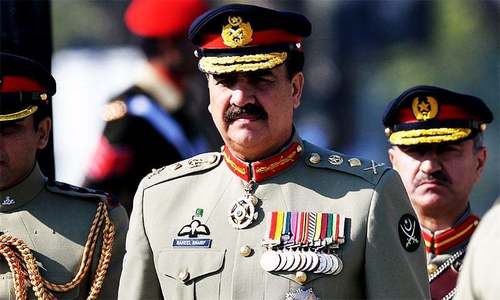Pakistan keeps mum over Iran envoy’s remarks
ISLAMABAD: The Foreign Office has avoided an immediate reaction to media statements by Iranian Ambassador Mehdi Honardoost who expressed reservations about Pakistan clearing former army chief Gen Raheel Sharif to lead a 39-nation military alliance put together by Saudi Arabia.
“Not now. We generally do not react to media reports. We’ll, however, look at it,” FO spokesman Nafees Zakaria said when contacted.
The spokesman had, however, at a briefing last Thursday dismissed the impression that Pakistan’s participation in the alliance would compromise its longstanding principle of neutrality in the Middle Eastern conflicts.
“You are talking about two different things. The basic purpose of this force is counter terrorism,” Mr Zakaria had said while responding to a questioner, who asked if Islamabad by joining the Saudi alliance had given up the policy of neutrality in the Middle East.
In a surprise diplomatic offensive, the Iranian envoy had, according to a report carried by Iran’s state news agency IRNA, expressed reservations over the issuance of No-Objection Certificate (NOC) by the Pakistani government for appointing Gen Sharif as head of the Saudi-led military alliance.
It was always expected that Iran being a Saudi adversary would not be comfortable with Riyadh’s move to set up such an alliance, though under the pretext of fighting the militant Islamic State group.
Islamabad’s decision to send the former army chief to lead the alliance is therefore all set to complicate the already fraught Pak-Iran ties. Mr Honardoost, according to IRNA’s dispatch, confirmed reports that the Pakistan government had shared with him in advance its intentions to allow Gen Sharif to join the Saudi-led alliance. However, the report noted that the envoy believes that a communication by the Pakistani side cannot be implied as Iran being satisfied with the decision or having accepted the same.
The ambassador said that he had informed his interlocutors that Iran would not become part of any alliance like the ‘military alliance’, nor such kind of offer had been extended to it.
“He (the ambassador) strongly believed that all important Islamic countries should come together to form a coalition of peace to resolve their issues rather [than] forming a controversial military alliance,” IRNA said.
Published in Dawn, April 4th, 2017














































